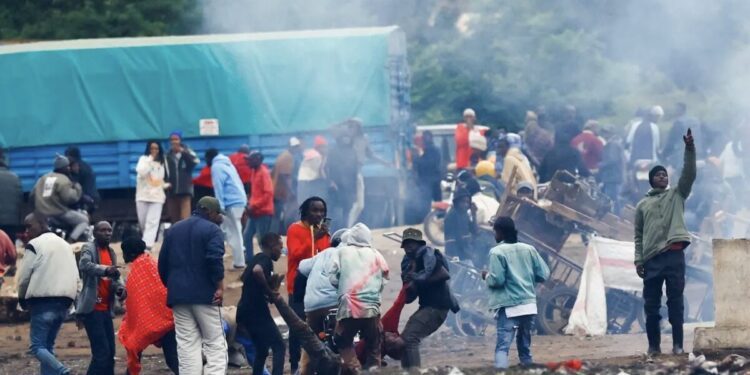Five days after bloody protests over presidential poll, social media platforms still remain restricted in Tanzania, though internet access has been restored.
Netblocks, a platform tracking cybersecurity and digital governance, confirmed internet restoration in Tanzania on Monday.
“Live metrics show widespread restrictions to multiple social media and messaging platforms as #Tanzania comes back online after a five-day internet shutdown,” Netblocks said in a post on X.
The cybercrime and digital governance tracking platform said the five-day internet disruptions “continues to limit election transparency and the free flow of information.”
Internet restoration came after President Samia Hassan was declared winner on Saturday and sworn in for a second term of five years on Monday.
Announced winner of the election which major opposition candidates, Tundu Lissu, of CHADEMA party and Luhaga Mpina of the Alliance for Change and Transparency (ACT-Wazalen, where barred from, Mrs Hassan’s swearing-in was held in State House in the capital Dodoma, a departure from the fun fair past ceremonies held stadium.
Mrs Hassan, who assumed power in 2021 following the death of former President John Magufuli, won 98 per cent of votes in a controversial election marred by violence, “large number of” deaths and internet shutdown.
Despite internet shutdown, footage of protesters destroying Mrs Hassan’s posters were circulated on social media, while opposition CHADEMA party said over 700 people were killed by police during the protests.
CHADEMA party in a statement on Sunday, accused the police of retrieving dead bodies to erase evidence, calling on the International Criminal Court to investigate the massive election killings and vowing not to recognise Mrs Hassan as President.
The Southern African Development Committee Electoral Observation Mission to Tanzania said the election fell short of democratic standards.
The EU, UK, Canadian and Norwegian missions in Tanzania also raised the alarm over the killings and internet shutdown during the election.
Amnesty International also said Tanzania’s “authorities have intensified the use of repressive laws to silence dissent, targeting journalists, civil society, human rights defenders, and opposition voices.”







